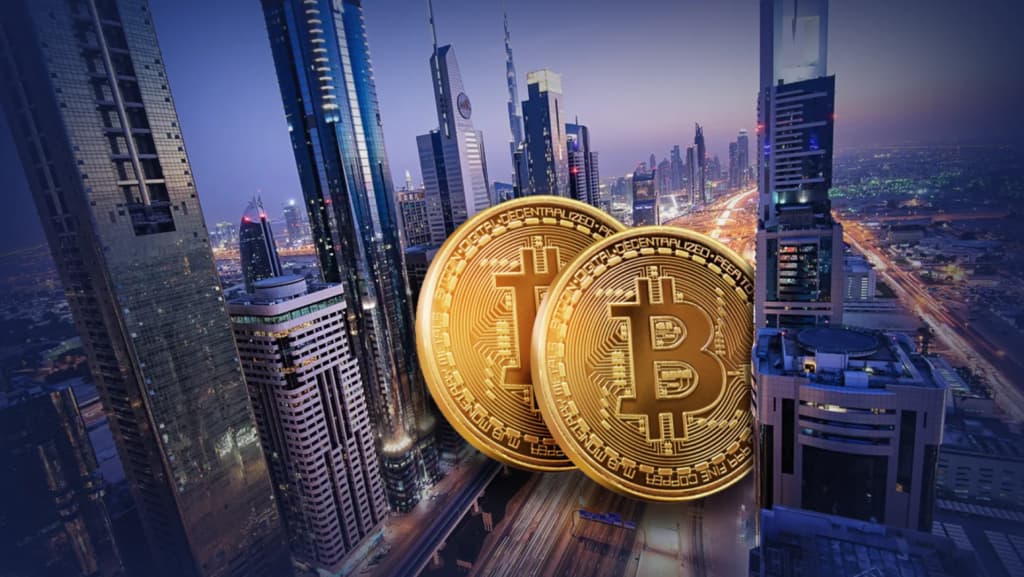
Dubai's Legal Framework Fuels Crypto Economy
Fintech Sector Surges as Groundbreaking 2024 Digital Asset Law Provides Certainty for Investors and Businesses
A powerful surge in Dubai’s digital economy, fuelled by a landmark legal framework enacted a year ago, is demonstrating how regulatory certainty can translate into tangible market growth.
Recent reports show that the number of fintech and innovation companies in the Dubai International Financial Centre (DIFC) has surged by 28 per cent in the first half of 2025, reaching 1,388 firms. This rapid expansion is a direct result of a clear and secure regulatory environment that has attracted global talent and investment.
This growth is not merely a sign of increased business activity; it’s being felt in real-world commercial activities. Dubai's real estate market, for example, is increasingly facilitating property purchases with cryptocurrency. These transactions, once considered a regulatory risk, are now guided by the very legal and regulatory frameworks put in place last year.
“The law ensures that these high-value transactions, from initial payments to final registration, are conducted legally and safely, providing a clear and trusted path for both buyers and sellers,” said Sunil Ambalavelil, Chairman of Kaden Boriss.
This newfound confidence in the digital asset space is rooted in two foundational developments from mid-2024. First, the DIFC Court of Appeal’s landmark ruling in the Huobi v Tabarak case established that cryptocurrencies are a "third kind of legal property." This judgment provided the legal clarity needed to define digital asset ownership and apply traditional legal remedies to modern disputes.
This was reinforced by the enactment of the DIFC's Digital Assets Law, which comprehensively outlined the legal characteristics of digital assets. Together, these measures have provided a stable and predictable environment, removing the ambiguities that often hinder innovation and deter institutional investors.
“By creating this robust framework, Dubai has not only cemented its position as a leading global financial hub but has also provided a blueprint for other jurisdictions grappling with the legal complexities of the digital economy. The sustained growth and real-world adoption seen today are the ultimate confirmation of that strategy's success,” noted Sunil Ambalavelil.
The Foundational Principles of a New Legal Class
The legal innovation of the DIFC cannot be overstated. The court's decision went beyond simply recognising digital assets; it provided a clear, logical basis for their legal treatment. By focusing on the concept of "control"-- specifically, the possession of a private key -- the judgment established a practical way to define ownership that aligns with the decentralised nature of these assets.
This legal clarity is particularly significant because the DIFC operates under a common law system. Its rulings and laws are highly persuasive in other common law jurisdictions worldwide, positioning the DIFC at the forefront of a global conversation on digital asset regulation. The legal framework provides specific rules for how title can pass, how to handle assets in cases of death or insolvency, and even introduces concepts for "coded contracts."
A Cornerstone of Dubai's Economic Ambition
This legal and regulatory initiative is not a standalone effort but a central pillar of Dubai's wider economic strategy. It aligns directly with the Dubai Economic Agenda "D33," which aims to double the size of the emirate's economy and establish it as one of the world's top three cities for business over the next decade.
By actively legislating for the digital economy and fostering a vibrant ecosystem for fintech, the DIFC is directly contributing to this ambitious vision. The proactive legal approach gives Dubai a competitive edge, attracting global investment in areas ranging from Web3 technology to artificial intelligence, and reinforcing its reputation as a hub for both finance and innovation.
Looking Ahead: The Future of Digital Assets
With the foundational legal framework now firmly in place, the focus for the DIFC is shifting towards the next phase of the digital economy. The regulator has already begun engaging with firms in its Tokenisation Regulatory Sandbox, an initiative designed to explore and regulate the tokenization of real-world assets.
The ability to tokenize assets like bonds, property, and even private funds could revolutionize capital markets by lowering barriers to entry, increasing liquidity, and enabling fractional ownership. This forward-looking approach ensures that Dubai remains adaptive and responsive to emerging technologies, solidifying its position as a leader in the future of finance.
For any enquiries please fill out this form, or contact info@thelawreporters.com Follow The Law Reporters on WhatsApp Channels